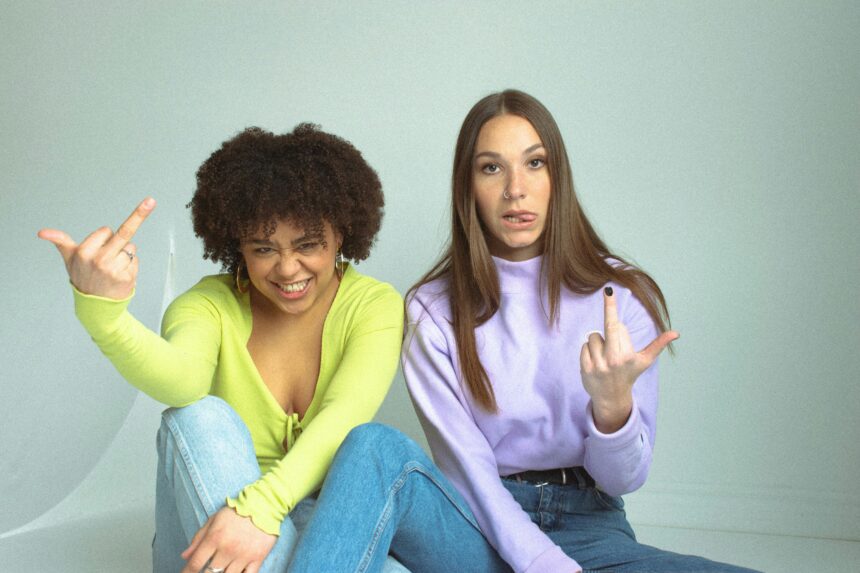Photo by Batu Gezer on Unsplash
Scrolling through TikTok or Instagram Reels, it’s hard to miss the captions:
“I’m just a girl 🥺” — as someone admits to skipping work responsibilities or spending the day in bed.
“Girl dinner ✨” — a plate of crackers, cheese cubes, and maybe a pickle, framed like a quaint lifestyle choice.
To many Gen Z users, these phrases are harmless, even empowering in their relatability. They’re shorthand for “give me grace” or “look how quirky I am.” But when we look closer, these trends echo a long, troubling history of reducing women to stereotypes — and in doing so, they normalize unhealthy eating habits, infantilization, and the idea that gender can excuse disengagement from responsibility.
The Harmless Mask of Humor
Humor has always been a powerful way for women to cope with the contradictions of societal expectations. “Girl dinner” is often framed as self-aware satire — a wink at the fact that many women do eat haphazardly after a long day. “I’m just a girl” is often said with irony, borrowed from Gwen Stefani’s Just a Girl, a song that was itself a critique of sexism.
The problem is that irony doesn’t erase impact.
When repeated over and over, these phrases shift from parody to a kind of cultural shorthand that reinforces the very stereotypes they were mocking — women as fragile, incapable, whimsical, and nutritionally careless.
Diet Culture Dressed in Glitter
“Girl dinner” is marketed as whimsical minimalism — a plate of snacks, often low in protein and nutrients, presented as an aesthetic. But researchers in public health have pointed out that these normalizing frames can be harmful. According to the National Eating Disorders Association, social media content that romanticizes restrictive eating — even unintentionally — can contribute to disordered eating patterns, particularly in young women.
Historically, this isn’t new. In the 1990s and early 2000s, “heroin chic” models were praised for eating little, their fragility linked to beauty. Today’s “girl dinner” is a softer, pastel version of that same message — an Instagrammable hunger.
Infantilization Disguised as Relatability
“I’m just a girl” operates on a similar wavelength. Yes, it can be a playful nod to gendered experiences — but it’s also a shrugging away of agency. Feminist philosopher Simone de Beauvoir wrote, “One is not born, but rather becomes, a woman” — a reminder that femininity is shaped by social constructs. When those constructs repeatedly encourage women to frame themselves as childlike, helpless, or lacking capacity, the result isn’t empowerment. It’s a reinforcement of the belief that women should have less responsibility and competence.
Why We Should Care
If these phrases stayed as occasional memes, they’d be harmless fun. But they’re not isolated. They fit into a bigger cultural pattern:
- A beauty standard that rewards women for being small, delicate, and underfed.
- An infantilization of women that excuses irresponsibility instead of advocating for education and empowerment.
- A social media economy that turns gender into a brandable aesthetic — one that sells best when it’s palatable to patriarchal expectations.
bell hooks once wrote, “Patriarchy has no gender.” This means women can unknowingly reinforce the very systems that harm them, especially when social media trends are driven by likes, relatability, and virality rather than reflection.
Moving Forward
There’s nothing wrong with snacking for dinner or having a lazy day — but framing those choices as “girl” behavior links them to gender rather than individual humanity. A better frame might be “human dinner” or “I’m just tired” — language that doesn’t tie basic needs or lapses in responsibility to femaleness.
Cultural shifts start with language. If we want a generation that views women as whole, capable, and nourished — in every sense — we have to interrogate the seemingly cute phrases that chip away at that vision.


Leave a Reply